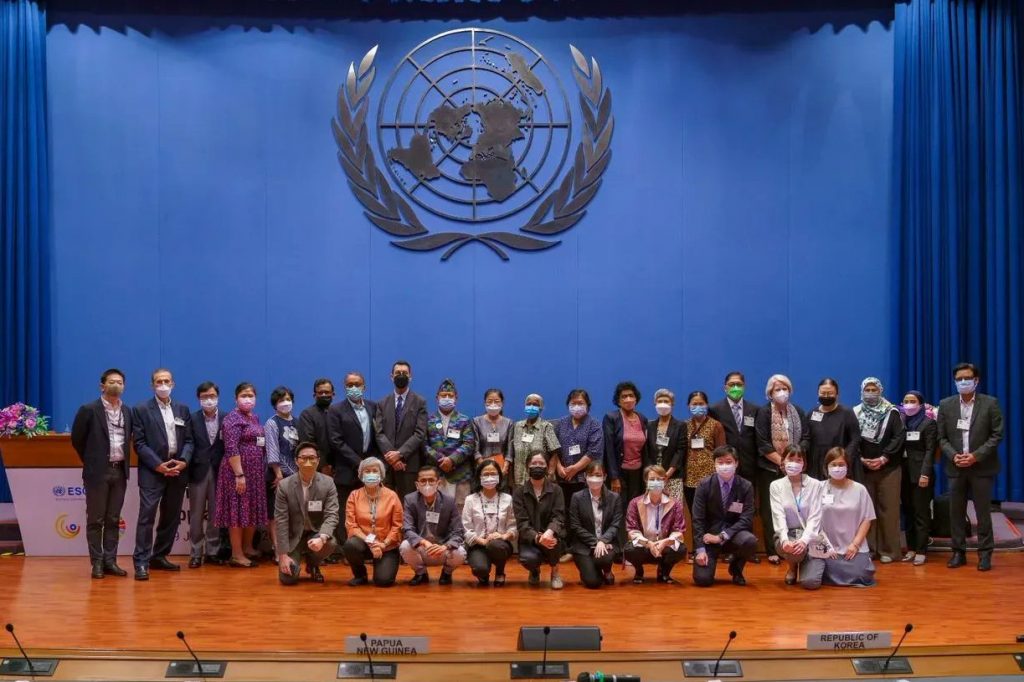On the occasion of the 20th anniversary of the Madrid International Plan of Action on Ageing (MIPAA), countries in Asia and the Pacific came together to review and appraise this action plan, which has provided policy directions for building societies for all ages with a focus on older persons and development; health and well-being in old age; and creating enabling environments. As one of the civil society organizations working on the theme of healthy aging in Asia, the Japan Center for International Exchanged (JCIE), represented by Momoko Abe, program officer, and Yojiro Ishii, senior associate, participated in this meeting.
The objective of this intergovernmental meeting was to provide an opportunity for member States to discuss progress on the action plan and identify remaining challenges, gaps and new priorities. Outcomes from this regional review will further inform the Fourth Global Review of MIPAA in 2023.
At the roundtable on “Advancing health and well-being into old age” held on the second day of the event, Momoko participated in the open discussion with member States under “Agenda Item 3: Consideration of key regional issues within the framework of the MIPAA, together with emerging issues”. In her statement, Momoko mentioned JCIE’s work in facilitating policy research and dialogues under the auspices of the Japanese government’s Asia Health and Wellbeing Initiative (AHWIN), and stressed the importance of identifying good practices, and promoting mutual learning within the region through initiatives such as the Healthy Aging Prize for Asian Innovation (HAPI).
She explained that Asia is a diverse region with numerous cultures and ethnicities, with their own social values, which could determine how families would provide care for older persons. Given this, she felt it is important to identify good practices conducted in the region to facilitate the process of inspiration and mutual learning.
A special event titled “Voice of older people” was held on the third day of the event, at which Yojiro Ishii of JCIE participated as an older person who is still active in the workforce (see below for video recording). He briefly shared the shift in retirement age in Japan and commented that in light of workforce shortages in the country, younger old persons (classified as those aged 65-74 years old in Japan) like himself are being encouraged to stay in the workforce longer. This not only allows older people to continue to play a role in society, contributing to their mental and physical wellbeing, but also improves their financial security, as they can receive larger pension payments if they stay in the workforce longer.
Throughout the three days, there were also a number of side events held alongside of the main review meeting. JCIE, together with HelpAge International co-hosted a side event titled “Older people associations (OPA) development in Asia”. Highlighting both HelpAge International in Vietnam and the Foundation of Older Person’s Development (FOPDEV) as grand prize winners of the 1st HAPI program, Momoko commented on the role OPAs play in improving older person’s living even in resource-limited settings.


